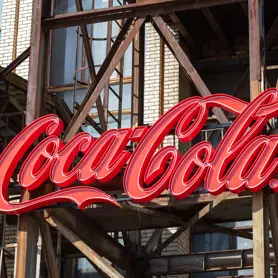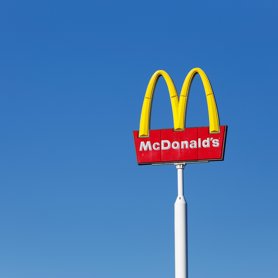Initial failures
Following the obsession with clear products in the 80s, and with the inspiration of White Coke in the 40s, Pepsi decided to create a ‘healthier’, caffeine free, colourless version of their popular formula. With the Superbowl on the horizon, every US marketing expert’s dream, Pepsi set out a 9 month sprint to get it launched. To be fair to Pepsi, the first year after the Superbowl campaign saw $474 million in sales, taking 2.4% of the soft drinks market share. It looked like their sprint was paying off.
Sadly, this triumph was short-lived. The first notable failure was the fact that Pepsi had failed to consider the effect UV would have on the liquid and opted for a clear bottle. It became apparent that with time and exposure to sunlight, Pepsi Crystal would develop off-putting flavours, leaving a bitter taste in the mouth of the consumer. It also received criticism for its deceitful marketing. Pespi Crystal was being touted as a healthy alternative. In reality, its calorie count was almost the same as the original formula, as was its high fructose corn syrup content.
Enter Coca-Cola
Another crucial obstacle in the path of Crystal Pepsi was the launch of Coca-Cola’s Tab Clear. This new campaign by Coke was a deliberate, calculated move to sabotage the launch of Pepsi Crystal. This game play is known as Kamikaze marketing. Coca-Cola, under the reign of Sergio Zyman, released Tab Clear as a calorie-free, caffeine-free soft drink, factors that Pepsi had not delivered on. Perhaps Pepsi overlooked the fact that Coca-Cola had worked on formulated a clear drink previously. Zyman has since shared that this tactic was used as a way to confuse consumers when they saw the soft drinks on the shelf, deterring them from buying anything altogether. This strategy led to cannibalised sales for Pepsi, and within six months of Tab Clear’s launch, both products were forgotten and discontinued.
Lessons learned
Slow and steady. The story of Crystal Pepsi indicates that jumping on the bandwagon of ‘clear’, ‘health-conscious’ products without a clear, health-conscious plan, is not a wise idea. When a brand focuses on popular cultural trends and forgets to focus on its integrity and brand identity, its consumer trust can become compromised. That’s why careful consideration, attention to detail and emotional intelligence are all non-negotiables when it comes to project management.
Stay Agile and adaptable. The initial success of Crystal Pepsi shows that, standing alone, the launch strategy was good. However, it seems that there was little forward-thinking or competitor analysis, and weak reaction times. Coca-Cola, on the other hand, showed extraordinary adaptability and reactive marketing ability, able to turn Project Tab Clear around at the drop of a hat to knock Pepsi Crystal off its precarious pedestal.
Transparency is key. We’ve previously identified that the key to building and maintaining brand is trust. Marketing Pepsi Crystal as a healthy alternative, and delivering the opposite, is a sure way to damage the trust of the consumer. Marketing may involve using language to enhance and sensationalise your product, but using a clear lie is a no-go.
The failure of Pepsi Crystal is demonstrative of just how damaging poor project management can be to a company’s integrity and success. Jumping into a project without proper planning, ignoring brand loyalty and insufficient change management can lead to significant product and brand failure.
To learn more about project management skills and what to do with them, check out our courses today.
Header image by katjabakurova - stock.adobe.com




